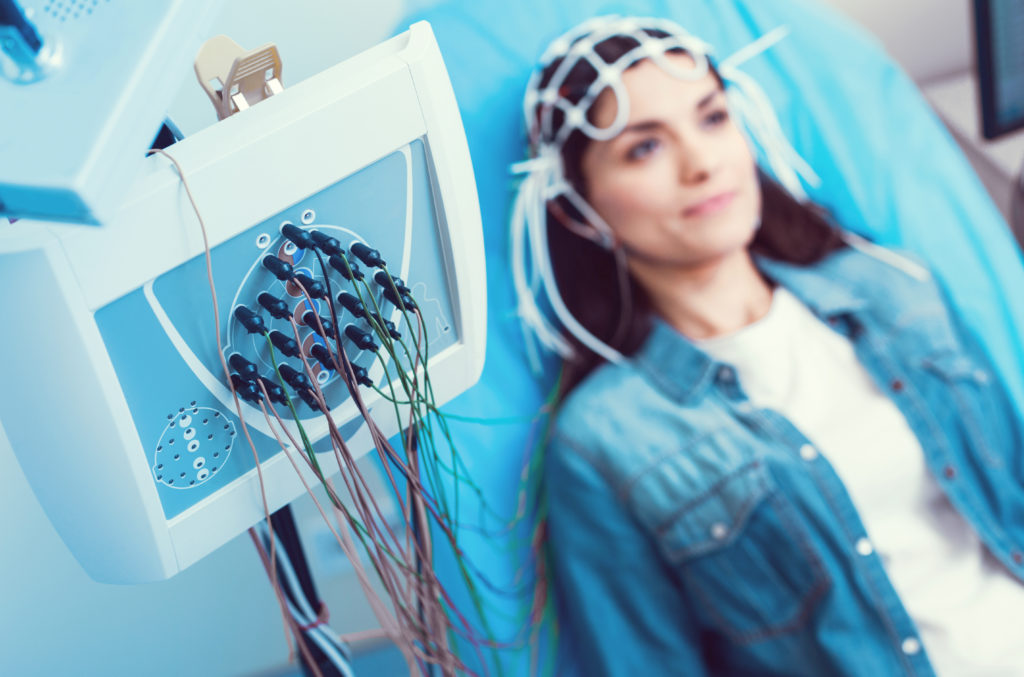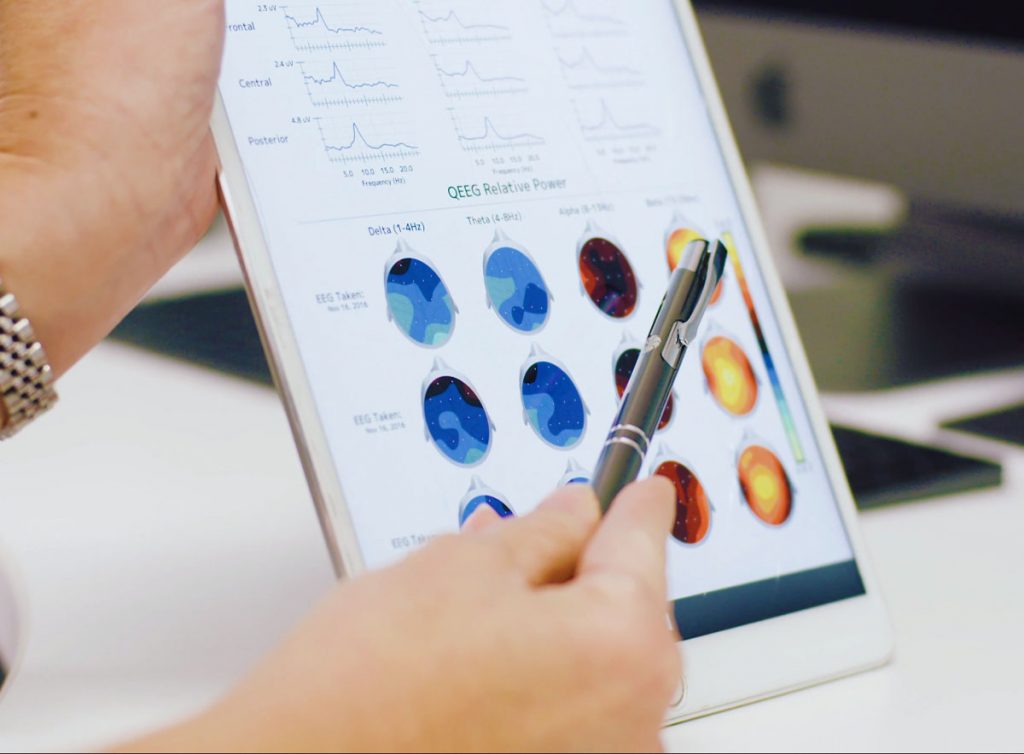
Frequently Asked Questions About MeRT
Many of the commonly asked questions and their answers
How is MeRT® treatment different from rTMS (repetitive transcranial magnetic stimulation)?
Unlike standard rTMS therapy, which delivers stimulation to one location at a fixed frequency for all patients, the MeRT approach individualizes the treatment frequency and location based on each patient’s Quantitative EEG and EKG. This results in a customized approach to the MeRT protocol.
What takes place during a typical MeRT session?
Cortical MeRT therapy delivers magnetic pulses to specifically targeted areas of the brain. A typical appointment of MeRT comprises:
- 30 trains of electromagnetic stimulation
- delivered for six seconds each
- with 54 seconds of rest period in between trains
- to a specific location on the head.
The session lasts approximately 45 minutes.
What benefits may result from MeRT treatment?
Functional recovery is the primary aim of treatment. Results are individual, depending on the initial presenting symptoms.
Common benefits from functional recovery include:
- Better sleep
- Increased sleep duration
- Reduction of stress symptoms
- Reduced pain
- Increased concentration and focus
- Improvement in mood
- Increased attention span
- Better sociability
- Increased motivation
- Improved clarity of thought
- Decreased cravings (e.g. drugs and alcohol)
- Increased emotional stability
- Better ability to adapt to change
- Improved self-confidence and self-esteem
How soon after I start MeRT therapy should I expect to see a response?
Everyone’s response to treatment is different. That’s why we require every new patient to the clinic to undergo an assessment period of two weeks. We have found that this assessment period helps us to determine how a patient is responding to MeRT treatment.
What are the side effects of MeRT therapy?
From our current data using the MeRT approach, side effects are few and generally mild. The most commonly reported side effect is a mild tension headache at the site of stimulation, which can last one to two hours and responds well to over-the-counter painkillers.
Other potential side effects are hyperactivity, increased agitation, or euphoria. With brain stimulation, there is also a risk of seizures — however, the risk is 1 in 150,000.
At the Brain Treatment Center, we also limit the intensity of stimulation to further reduce any possible risk of seizure activity.
How long will the effects of MeRT therapy last?
Results can vary per individual. In general, the longer the length of MeRT therapy, the longer the changes remain, especially if you receive MeRT therapy for more than one month.
Who is not able to receive MeRT?
These are the contraindications for MeRT treatment:
- Pacemaker
- Defibrillator
- Vagal nerve stimulator
- VP Shunt/magnetic intracranial shunts
- Deep brain stimulator
- Epidural cortical stimulator
- Steel shunts/stents
- Cranial metal fragments (i.e. shrapnel, excluding titanium)
- Cochlear implant
- Aneurysm clips, coils, pipelines, flow diversion
- Pregnant or breastfeeding
- Primary brain cancer/metastatic legions in the brain (unless palliative care)
- Magnetic dental implants
- Implanted cardioverter defibrillators (ICD)
- Ocular implants
These require closer protocol attention and may or may not disqualify someone from receiving cortical MeRT treatment, depending on the doctor’s discretion and the person’s individual condition.
- History of seizure or seizure disorder
- Titanium shunts/stents
- Spinal cord stimulator
- Hearing aids
- Ferrous cortical implants
- Magnetic ink tattoo
- Bipolar disorder type I/II
- Baha implant
Contact our New Patient Coordinator for More Information about MeRT
When many patients come to see us, they have lost hope, as they don’t see any light at the end of the tunnel.
It’s rewarding as a practitioner to help so many people realize a much better “normal” and improved quality of life.
If you have questions or would like to discuss our treatment protocols, we offer a free consultation by phone.
Our New Patient Coordinator will take the time to listen and explain. She is able to answer most questions and discuss our protocols, scheduling, fees, and other information. She is happy to assist you in any way she can.
Please call us to get more information about how our clinic and Dr. Miller may help you with your health goals and to schedule an initial screening to see if MeRT may be an option.





